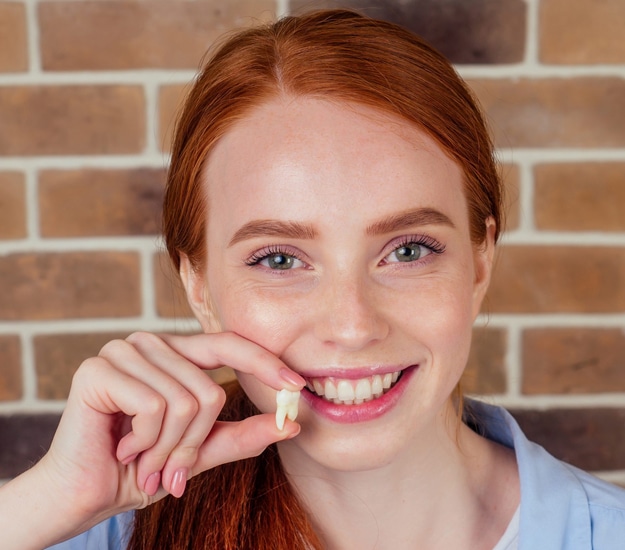
Gentle, professional tooth extractions offered
We strive to maintain the health of your teeth through professional dental cleanings and exams. We collaborate with our patients to provide techniques and tips for lifelong tooth preservation. However, there are instances where a dental extraction becomes necessary. Whether it is due to trauma, gum disease, deep decay, bone loss, or any other reason, we will evaluate the situation and inform you if the tooth can be saved or if an extraction is required.
If an extraction is needed, our compassionate dentist and supportive team will assist you throughout the process, including discussing tooth replacement options. While it is never ideal to lose a tooth, our priority is to promote your overall health and well-being, and sometimes removing a problematic tooth is necessary.
Simple vs surgical tooth extraction: what's the difference?
Simple Extractions
Surgical Extractions
Surgical extractions involve removing teeth that have not fully emerged or have not emerged at all. To access your tooth, we will need to make an incision. Our dentist prioritizes your comfort and will only proceed with the procedure once your jaw is completely numb.
Once the incision is made, we will gently loosen and remove your tooth. Stitches may be necessary for healing in surgical extractions. Dr. Gomez will provide instructions on how to care for your specific surgical site and assist with pain management during the healing process, although tooth extraction is generally not very painful.
By carefully following your post-surgical instructions, you can expect a prompt recovery.
Why might I need an extraction?
Decay, Trauma, or Root Canal Failure
Wisdom Teeth Extractions
Before Orthodontics
Before Dentures
What tooth replacements do you offer?
At Nederland Family Dental, we provide a range of tooth replacement options to assist in restoring your smile after experiencing tooth loss. Our dentist will assess the condition of your teeth and gums to determine the most suitable choice for enhancing your smile.
The available tooth replacement options are as follows:
- Dental bridges: These are replacement teeth that are attached to the adjacent teeth.
- Dental implants: This involves surgically implanting a replacement root and dental crown (tooth).
- Dentures and partials: These are restoration teeth placed on an arch to fill in for full or partial tooth loss.
Do you offer sedation dentistry?
How to prevent tooth loss?
- Make sure to schedule dental exams and teeth cleanings with your dentist twice a year.
- Remember to brush your teeth and floss at least twice a day at home.
- Try to avoid consuming foods and drinks that are high in sugar and acidic.
Call Our Port Arthur Office for a Dental Exam
If you are experiencing problems with your wisdom teeth or require an extraction, we are here to help. Please contact our Port Arthur dental office to schedule an exam with our highly skilled dentist.
At Nederland Family Dental, we specialize in treating a wide range of dental conditions and do not require a referral. Our team is dedicated to providing the same level of care that we would give to our own families. We are excited to have you join our dental practice and look forward to serving you.


